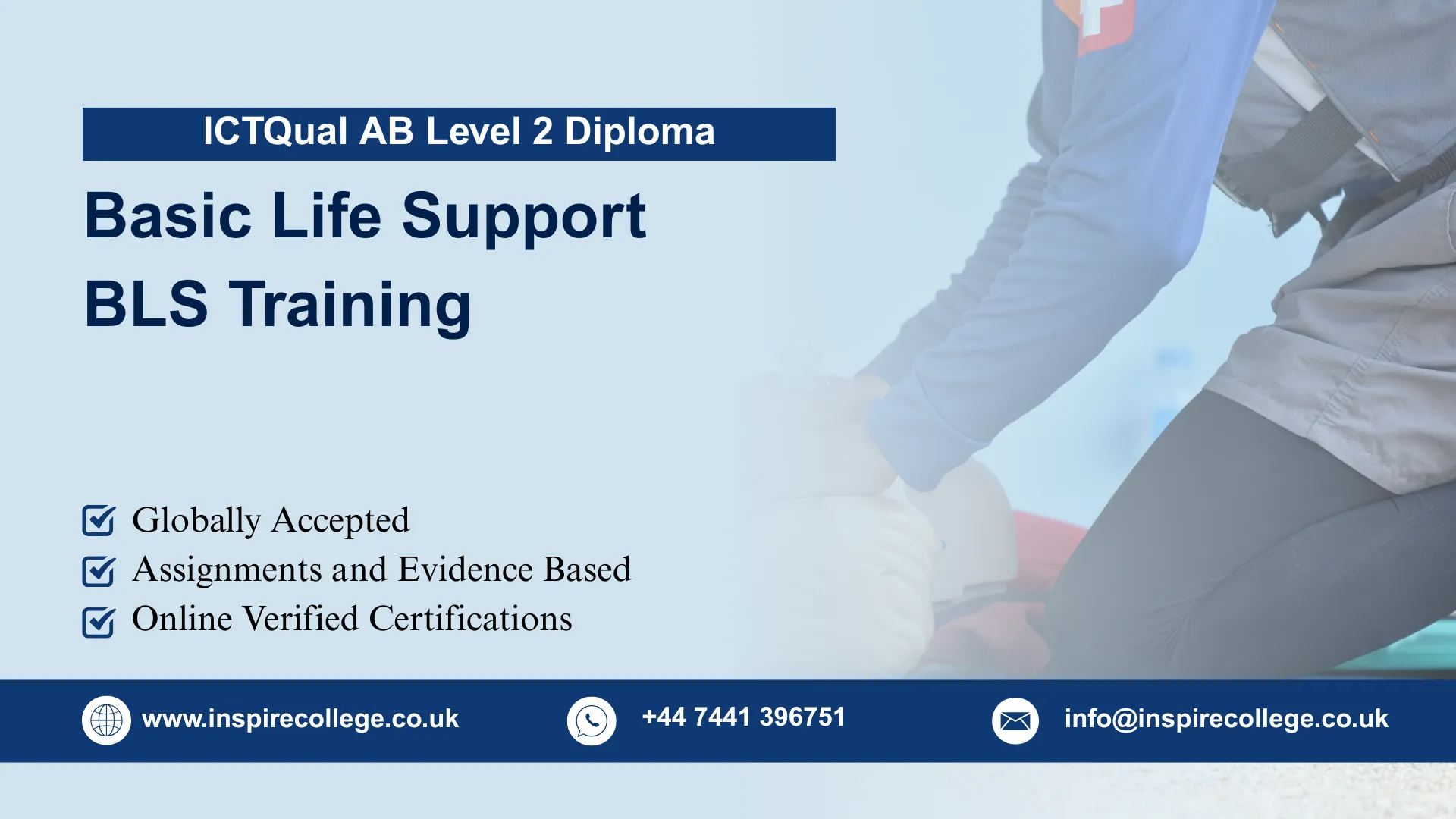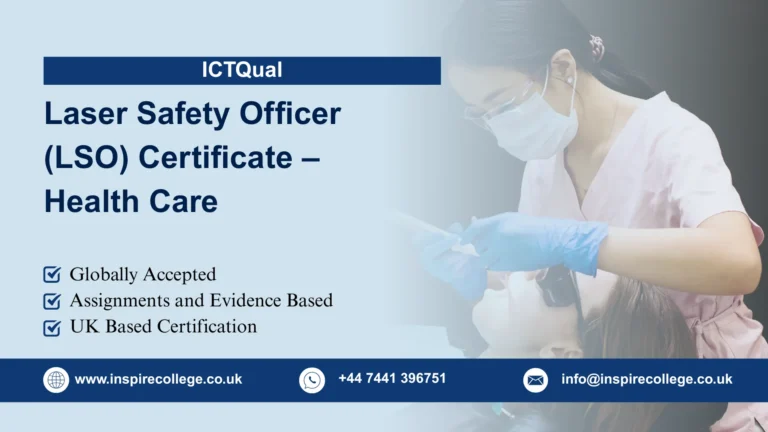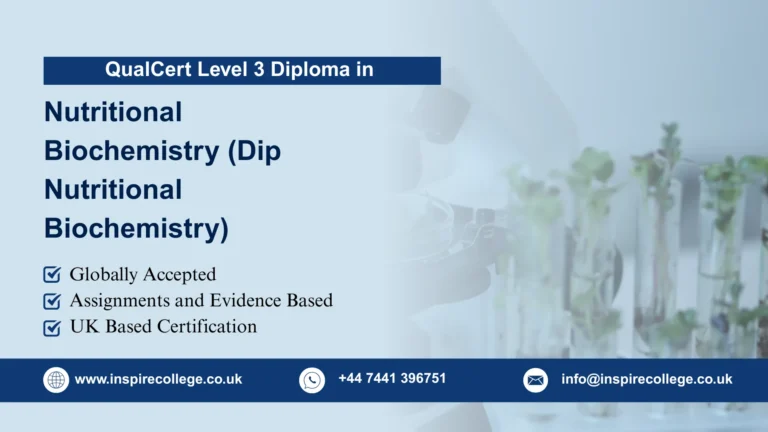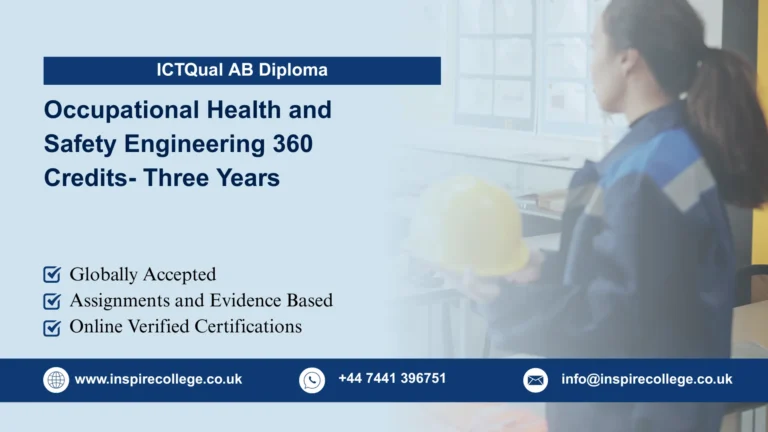
ICTQual AB Level 2 Diploma in Basic Life Support BLS Training
In emergency situations, the ability to provide timely and effective life support can save lives. The ICTQual AB Level 2 Diploma in Basic Life Support (BLS) Training equips learners with the essential skills and knowledge required to respond confidently to life-threatening emergencies, including cardiac arrest, choking, and respiratory failure. This qualification is highly relevant for healthcare assistants, first aiders, workplace safety personnel, and anyone seeking foundational competence in emergency medical response.
The purpose of ICTQual AB Level 2 Diploma in Basic Life Support BLS Training is to develop learners’ practical and theoretical understanding of basic life support techniques. Participants will gain hands-on experience in performing cardiopulmonary resuscitation (CPR), using automated external defibrillators (AEDs), and assessing emergency scenarios to provide effective interventions. The training also emphasises adherence to health and safety regulations, infection control, and professional standards in emergency care.
Throughout the programme, learners will learn to identify life-threatening conditions, apply appropriate BLS procedures, and maintain patient safety during emergencies. ICTQual AB Level 2 Diploma in Basic Life Support BLS Training combines interactive theoretical sessions with practical exercises, ensuring learners develop both competence and confidence in performing essential life-saving skills.
Upon completion of the ICTQual AB Level 2 Diploma in Basic Life Support (BLS) Training, learners will be prepared to respond effectively in emergency situations across healthcare, workplace, and community settings. ICTQual AB Level 2 Diploma in Basic Life Support BLS Training not only enhances employability but also provides a strong foundation for further training and professional development in advanced life support, pre-hospital emergency care, and other healthcare-related pathways.
The ICTQual AB Level 2 Diploma in Basic Life Support (BLS) Training is designed for learners from a wide range of backgrounds who meet specific entry criteria. These requirements ensure a safe, effective, and engaging learning environment, allowing participants to gain maximum benefit from the course.
Age Requirement
Learners must be at least 18 years old. This ensures that participants have the maturity and responsibility necessary to engage with life-saving techniques and respond appropriately during emergency situations.
Basic Literacy and Numeracy
A fundamental understanding of reading, writing, and numerical skills is required. This enables learners to follow written instructions, complete assessments accurately, and interpret vital information during training and practical exercises.
Physical Fitness
The course involves hands-on practical training, including cardiopulmonary resuscitation (CPR) and patient handling exercises. Learners should have a reasonable level of physical ability to perform these tasks safely and effectively.
No Prior Experience Required
This qualification is suitable for beginners, as well as for individuals seeking to refresh or update their existing BLS knowledge. No previous medical or healthcare experience is necessary to enrol, making it accessible to a broad range of learners.
Commitment to Health and Safety
Learners are expected to demonstrate a strong awareness of health, safety, and infection control procedures. They should be prepared to act responsibly in practical scenarios, maintaining both their own safety and that of others while performing life-saving interventions.
These entry requirements ensure that all participants are well-prepared to fully engage with the ICTQual AB Level 2 Diploma in Basic Life Support (BLS) Training, develop essential skills, and apply their knowledge confidently in emergency situations.
Mandatory Units
The ICTQual AB Level 2 Diploma in Basic Life Support BLS Training qualification consists of 6 units and 18 Credits for the complete qualification.
- Life Support Techniques for Medical and Trauma Cases
- Advanced CPR, AED, and Oxygen Administration
- Pre-Hospital Care and Transportation
- Neurological Emergencies: Stroke, Seizures, and Head Trauma
- Respiratory and Cardiac Emergency Interventions
- Ethical and Legal Considerations in BLS
Learning Outcomes – ICTQual AB Level 2 Diploma in Basic Life Support (BLS) Training
Life Support Techniques for Medical and Trauma Cases
- Learners will develop the ability to assess and stabilise patients in both medical and trauma-related emergencies.
- They will apply appropriate life support techniques to manage airway, breathing, and circulation in critical situations.
- Learners will identify and differentiate between medical and trauma-related life-threatening conditions to provide effective care.
Advanced CPR, AED, and Oxygen Administration
- Learners will perform high-quality cardiopulmonary resuscitation (CPR) on adults, children, and infants.
- They will demonstrate the safe and effective use of automated external defibrillators (AEDs) in cardiac arrest situations.
- Learners will understand the principles of oxygen therapy and administer oxygen correctly to support respiratory function.
Pre-Hospital Care and Transportation
- Learners will assess and prioritise patient needs for stabilisation and safe transportation.
- They will apply best practices for moving and handling patients to prevent further injury.
- Learners will understand the roles and responsibilities of emergency responders in pre-hospital care environments.
Neurological Emergencies: Stroke, Seizures, and Head Trauma
- Learners will recognise the signs and symptoms of stroke and initiate appropriate first-response interventions.
- They will identify different types of seizures and provide immediate care to minimise complications.
- Learners will apply first aid measures for head trauma, ensuring patient stability while awaiting advanced medical support.
Respiratory and Cardiac Emergency Interventions
- Learners will identify and respond to respiratory distress, including asthma attacks, choking, and anaphylaxis.
- They will understand the management of cardiac emergencies, including heart attacks and arrhythmias.
- Learners will demonstrate airway management techniques to support breathing in critical cases.
Ethical and Legal Considerations in BLS
- Learners will understand the legal responsibilities and limitations involved in providing Basic Life Support.
- They will apply ethical decision-making in emergency situations while respecting patient rights and consent.
- Learners will recognise the importance of accurate documentation and effective communication in emergency medical response.
The ICTQual AB Level 2 Diploma in Basic Life Support (BLS) Training equips learners with essential skills and knowledge in emergency medical response, providing a strong foundation for career advancement and further professional development. Upon successful completion, learners can explore a variety of progression pathways tailored to healthcare, emergency services, and workplace safety roles.
Higher-Level Emergency Medical Training
Learners can progress to more advanced qualifications such as First Aid at Work, Emergency First Responder, or Emergency Medical Technician (EMT) courses. These programs build on foundational BLS skills, preparing individuals to handle complex medical emergencies with confidence.
Specialist Healthcare Roles
This qualification enhances career prospects in healthcare, nursing, paramedicine, and care support roles that require practical life-saving skills. Learners gain a competitive edge by demonstrating competence in emergency response techniques essential for professional practice.
Workplace and Industry-Specific Training
Learners can specialise in sector-specific first aid training, including paediatric first aid, workplace first aid, and trauma care for high-risk environments. These targeted skills enable learners to meet industry standards and workplace safety requirements.
Continued Professional Development (CPD)
Learners may also choose to progress to higher-level qualifications such as the ICTQual AB Level 3 Diploma in Basic Life Support (BLS) Training, Emergency Medical Technician (EMT) training, or specialised pathways in trauma care and paediatric life support. These advanced study options support ongoing professional growth, ensure up-to-date competency, and open doors to wider career opportunities in healthcare, emergency response, and workplace safety.
Pathway to Medical and Rescue Professions
The diploma serves as a stepping stone for careers in ambulance services, fire and rescue, lifeguarding, and other emergency response professions. Learners gain the practical experience and confidence needed to succeed in high-pressure, life-saving roles.
Overall, the ICTQual AB Level 2 Diploma in Basic Life Support (BLS) Training provides a valuable foundation for individuals aiming to expand their expertise in life support and emergency medical interventions, ensuring continued professional development, career advancement, and voluntary service opportunities.
The ICTQual AB Level 2 Diploma in Basic Life Support (BLS) Training is designed for individuals who want to develop essential life-saving skills and build a foundation for careers in healthcare, emergency response, and workplace safety. This course is ideal for:
Aspiring Healthcare Professionals
Learners aiming to enter healthcare roles such as care assistants, nursing support staff, or medical trainees who require a strong understanding of life support and emergency response.
Emergency Responders and First Aid Personnel
Individuals working in ambulance services, fire services, security, or workplace first aid roles who need accredited BLS skills to respond effectively in critical situations.
Career Changers
Those transitioning from other sectors into healthcare or emergency services who want a recognised qualification in basic life support to enhance employability and professional credibility.
Volunteers and Community Workers
People involved in voluntary care, community health initiatives, or charity organisations who want practical skills to manage medical emergencies safely and confidently.
Learners Planning Further Study
Individuals intending to progress to higher qualifications, including Advanced Life Support (ALS), Emergency Medical Technician (EMT), or pre-hospital emergency care courses, as part of a long-term career pathway in healthcare or emergency services.
This course is highly suitable for workplace safety officers, supervisors, and managers who are responsible for maintaining occupational health and safety standards within their organizations. Whether in corporate offices, industrial sites, manufacturing plants, or healthcare facilities, these professionals play a crucial role in ensuring emergency preparedness and compliance with regulatory requirements. Obtaining a formal Basic Life Support (BLS) certification equips them with the ability to respond effectively to medical emergencies such as cardiac arrest, choking, or respiratory distress, while also meeting workplace health and safety regulations.
This course is ideal for motivated, safety-conscious, and responsible learners who are committed to acquiring practical emergency response skills, professional knowledge, and confidence in handling life-threatening situations. Completing this qualification enhances career prospects and prepares learners for both professional and voluntary roles in healthcare and emergency services.
Register Now
FAQs for ICTQual AB Level 2 Diploma in Basic Life Support BLS Training






